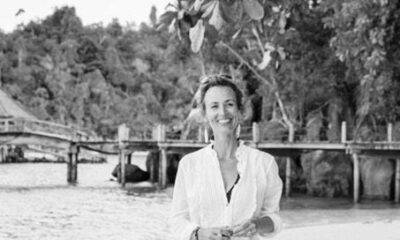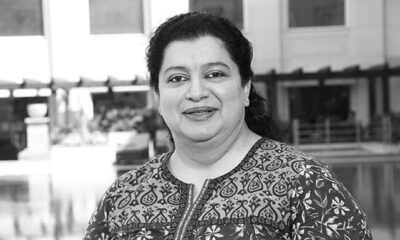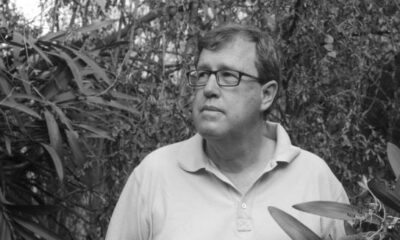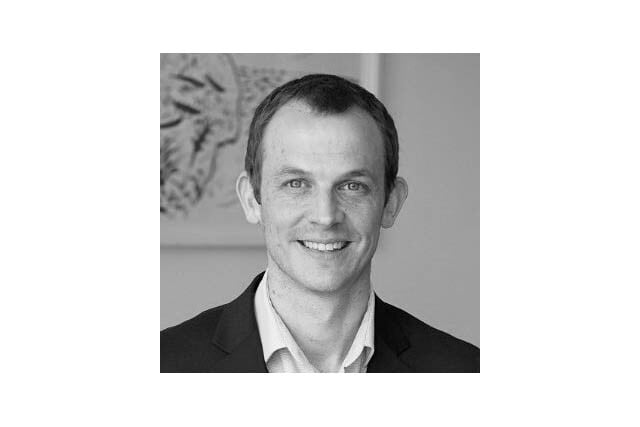
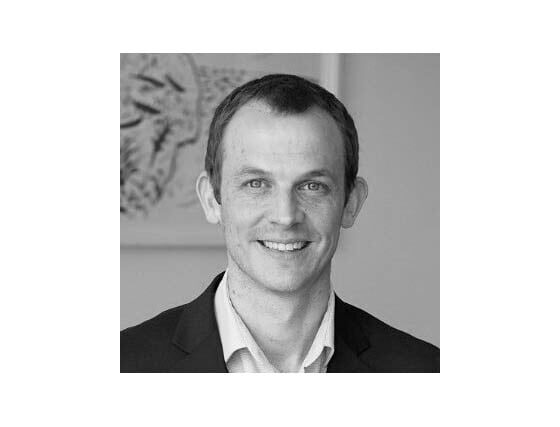
Economy
Exclusive Interview: Thom Kenrick, Head of Community Programmes, RBS
Thom Kenrick is Head of Community Programmes at RBS. He leads the bank’s strategy for supporting and engaging with its communities through its customer-facing brands, including NatWest, The Royal Bank of Scotland and Coutts. His team is responsible for the bank’s community programmes and partnerships, as well as leading and coordinating RBS’s staff and customer-facing giving, fundraising and volunteering. Prior to joining RBS, Thom worked for Unilever on supply chain projects in various parts of the world. Thom is a Fellow of the RSA and a Board Trustee for two charities: RBS Social & Community Capital and the Coutts Foundation.
- What are RBS’s Community Programmes?
At a UK-wide level we lead with three flagship programmes. First, our MoneySense programme provides completely impartial financial education resources for teachers, parents and young people to help the next generation learn about managing money. Second, our long-term strategic partnership with The Prince’s Trust to support their enterprise programme, where we work together to help disadvantaged and unemployed young people to start their own business. Third, our Skills & Opportunities Fund distributes £2.5m a year in smaller grants – via seven regional ‘pots’ – to charities, community groups and other not-for-profits. The Skills & Opportunities Fund grants are made to support projects that help people from disadvantaged communities to develop new skills or start a business.
We also support and encourage our customers and colleagues to give and fundraise for charities and campaigns that are important to them. For colleagues this includes a range of support including payroll giving and fundraising grants, and for customers it includes over the counter donations for appeals, ATM giving and the charity donation element of our MyRewards scheme.
In addition to these programmes, we have community activity linked to our sports sponsorships too. For example, our CricketForce and RugbyForce programmes support local clubs across the UK to improve their facilities and encourage greater participation.
Finally, as one of the UK’s biggest banks, we have customers right across the UK & Ireland and so we are engaged in our communities at a local level too. Our branches, call centres and other local teams all get involved with local activity throughout the year to make a positive difference in their communities.
- What was the driver behind these?
Our three flagship programmes are built out from our business strategy as a bank that wants to serve its customers well and help them to succeed. We focus efforts on financial capability skills and on supporting enterprise (or business) development, which are the areas where our stakeholders – including customers, colleagues, shareholders and media – say they believe we have the greatest responsibility and we believe can make the greatest difference, as this draws on our core business capabilities.
As a bank we also have a fantastic physical and digital network for handling money and moving it around, which is why we also take our support for campaigns and appeals very seriously. Wherever possible we try to find ways to make donating or fundraising easy for our colleagues and customers – whether that’s raising money for their favourite charity by doing a local fun-run or donating to a major appeal such as Children in Need or the current Disasters Emergency Committee ‘Yemen Crisis Appeal’.
- Who do they primarily serve?
Our flagship programmes were all designed with a particular audience in mind. We aim for those audiences (for the most part) to be fairly distinct from one another, so that we can have the maximum impact over the widest possible audience. In all cases our community programmes are designed to “fill a gap” that might otherwise exist – hence the focus is generally on more disadvantaged groups, or on children and young people.
For example, our work with The Prince’s Trust means that we can help hundreds of disadvantaged or unemployed young people to start a business every year. These are people who the bank would typically have to turn away for business lending for one reason or another but, by working with The Trust, we are able to extend our support and help them get access to the support, skills, training, networks and finance that they need to get their business off the ground.
- What difference does RBS want to make with these programmes?
Through MoneySense we want to help another 1 million young people learn about money between 2016 and 2018, adding to the millions that we have already helped over the 22 year history of the programme.
By working with The Prince’s Trust we want to help hundreds of disadvantaged young people every year to realise their ambition and start businesses, and we are working with The Trust to find ways to constantly increase the reach and impact of the programme.
The Skills & Opportunities Fund has a broader remit but we are looking to help more 25,000 people from disadvantaged communities each year through the combined reach of all the funded projects. We measure a range of impact including qualifications gained, access to jobs, and new businesses started.
Finally, through our promotion of giving and fundraising we aim to facilitate millions of pounds being donated to appeals, charities and community groups across the UK every year, from tiny local charities right the way up to the largest UK and international organisations.
- What are the barriers to making that difference?
Awareness and visibility of what we are doing is probably the biggest barrier. For example, our MoneySense ambition (1 million more young people by the end of 2018) is a stretch target for us and so it is really important that we reach as many teachers, parents and young people to engage them with the programme. Our research suggests that under 20% of the UK population know that MoneySense is available, so it would be great to increase that and help more young people.
But just doing more promotion is not necessarily the right approach. I think it can be a difficult line to tread between promoting the programmes to have the impact you’re hoping for and the risk that people take a cynical view that we are only doing this stuff as a marketing exercise. All our flagship programmes have a strategic purpose and clear social impact objectives and measurement built in, as we believe this is the best way to make sure we are making a difference and doing stuff that matters to our stakeholders. But it is a complex and nuanced message that can sometimes get lost or misinterpreted.
It is not just RBS that faces this challenge. In CAF’s most recent “Charitable Giving by the FTSE100” (March 2016) report they state that “awareness of such giving is low among the British public, who on average only think 36 per cent of FTSE 100 companies donate to charitable causes in a typical year. This lack of awareness should be of concern to businesses, particularly given that knowledge of a company’s charitable activity can impact behaviour positively.” The report also notes that “almost three-quarters of the public (73%) agreeing that businesses should be more open and transparent about their charitable giving.”
If you stop and think about it for a minute – what company-run community programmes or partnership can you instantly reel off the top of your head? I think the answer is usually “very few, if any”. It is not something that is in very many people’s consciousness (compared with sports or arts sponsorships, for example) and that can be a factor when you are trying to maximise your impact.
- Who’s helping you overcome those barriers?
We’ve got a great network of partners that we work with to reach the different audiences for each programme, and our own communications and marketing teams are really supportive in helping us get the word out for major moments.
Something I’ve learned is that it’s not a “one size fits all” thing and it is not just about shouting loudly and hoping people notice. We take a range of approaches with different audiences to raise awareness and engagement with our programmes. For MoneySense this includes everything from the recent MoneySense TV advert and social media campaign with Mog, to direct engagement with teachers, expert groups and teacher training colleges, to social media and email. Each programme takes an approach that is most appropriate for the audience and we regularly review feedback to see how we are doing and what we can do better or differently to reach more people and/or facilitate better engagement.
- Are financial institutions doing enough to support communities?
If you look at it in purely financial terms, the CAF FTSE 100 report shows that financial institutions are right up there compared with other industries, giving over £2.1 billion between 2009 and 2014, which is around 1.4% of pre-tax profit. But I think that ‘supporting communities’ is much broader than corporate giving statistics. It’s about how we serve our customers, support our colleagues and work with our local communities to support sustainable economic and social development.
For example, we launched a 95% mortgage for first time buyers toward the end of 2016 that will make the ambition of buying their own home a reality for a large number of people for the first time. We have Community Protection Officers working in every region with our branches to help detect frauds and scams, stop them in their tracks, and then work with customers to avoid falling for the fraudsters’ tricks. We partner with Entrepreneurial Spark on our business accelerator hubs – called ‘hatcheries’ – in 12 locations across the UK to help small businesses survive and scale faster, driving investment and creating jobs. And we also contribute over £10m a year to the debt and money advice sector, helping to provide free support and advice to those who need it most. All of these examples, and more, contribute to our overall support for UK communities.
- How can people – individuals and organisations – find out more about RBS’s community programmes?
- Our 2015 Sustainability Report: http://www.rbs.com/content/dam/rbs/Documents/Sustainability/2015docs/Sustainability_Report_2015.pdf
- Online at http://www.rbs.com/sustainability/community.html
- MoneySense: https://mymoneysense.com/ or go into your local branch of NatWest, Royal Bank of Scotland or Ulster Bank
- Skills and Opportunities Fund: http://skillsandopportunitiesfund.rbs.com/
- The Prince’s Trust & NatWest: https://www.princes-trust.org.uk/about-the-trust/success-stories/natwest
- And finally… What community programme or partnership from another company do you really admire, and why?
My favourite partnerships are the ones that don’t need explaining, you just go “oh yes, of course they would do that”.
I think the partnership between the British Red Cross (BRC) and Land Rover is very clever. They have such a natural fit, as both of them have a core mission that’s about reaching remote and/or difficult to access places. BRC benefit through access to the vehicles and expertise (as well as fundraising!) and Land Rover gets its vehicles in the media doing amazing stuff through snow and rock and floods every time the Red Cross respond to an emergency.
I also admire the Boots & Macmillan partnership for similar reasons: it just makes sense, it combines and extends the reach of both organisations to help lots of people, and it does wonders to raise the visibility of both the charity and the cause.


 Environment12 months ago
Environment12 months agoAre Polymer Banknotes: an Eco-Friendly Trend or a Groundswell?

 Features11 months ago
Features11 months agoEco-Friendly Cryptocurrencies: Sustainable Investment Choices

 Features12 months ago
Features12 months agoEco-Friendly Crypto Traders Must Find the Right Exchange

 Energy11 months ago
Energy11 months agoThe Growing Role of Solar Panels in Ireland’s Energy Future


